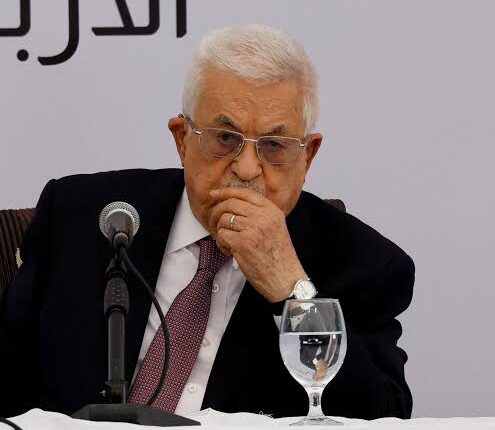U.S. Denies Palestinian President Abbas U.N. Visa as Allies Pledge Statehood Recognition
The United States has barred Palestinian Authority President Mahmoud Abbas from attending next month’s United Nations General Assembly in New York, where multiple U.S. allies are expected to formally recognize Palestine as a state.
The U.S. State Department confirmed the decision on Friday, stating that Abbas and about 80 other Palestinians affiliated with the Palestine Liberation Organization (PLO) and the Palestinian Authority (PA) would be denied visas to the U.S.
Abbas had been scheduled to participate in the U.N. summit, as well as a separate summit hosted by France and Saudi Arabia, where countries such as Britain, France, Australia, and Canada have pledged to recognize Palestine’s statehood. The U.S. move has sparked strong reactions from Palestinian officials, with Abbas’ office condemning the decision as a violation of the U.N. “headquarters agreement,” which typically mandates that foreign diplomats be allowed to access the U.N. in New York.
The State Department cited longstanding U.S. and Israeli concerns over alleged extremism within the PA and PLO, arguing that the organizations have not sufficiently renounced violence while seeking unilateral recognition of Palestinian statehood. Washington has emphasized that its stance is based on national security interests and the need to hold the Palestinian leadership accountable for actions that, in the U.S.’s view, undermine the peace process.
In a statement, the U.S. maintained that the PA and PLO must “repudiate terrorism” – referring to the Hamas attack on Israel in October 2023, which led to the ongoing war in Gaza. However, Palestinian officials have rejected these claims, arguing that decades of U.S.-mediated peace talks have failed to end Israeli occupation or deliver a viable Palestinian state.
The decision has raised concerns about potential violations of the 1947 U.N. “headquarters agreement,” which requires the U.S. to allow foreign diplomats access to the U.N. However, Washington maintains that it can deny visas on the grounds of security, foreign policy, and extremism concerns. U.N. spokesperson Stephane Dujarric noted that the matter would be discussed with the U.S. to ensure compliance with the agreement.
This is not the first time the U.S. has denied a visa to a Palestinian leader: in 1988, the U.S. also refused a visa to then-PLO leader Yasser Arafat, forcing the U.N. to hold a session in Geneva instead.
While the U.S. and Israel strongly oppose the recognition of Palestinian statehood at the U.N., there is growing international support for Palestinian sovereignty. At least 147 of the 193 U.N. member states already recognize Palestine, and several Western countries are expected to pledge recognition in the coming weeks, amid ongoing frustrations with Israel’s military actions in Gaza and its settlement expansion in the West Bank.
The Palestinians have long aspired to establish a state within the borders of the West Bank and Gaza, with East Jerusalem as its capital. The U.S. has consistently stated that it believes the creation of a Palestinian state should come through direct negotiations between Israel and Palestine, not unilateral actions at the U.N.
Israel’s Foreign Minister, Gideon Saar, expressed support for the U.S. decision, aligning with Washington’s stance on Palestinian leadership. The U.S. and Israel have repeatedly criticized the Palestinian leadership’s approach, especially in light of the ongoing violence in Gaza.
As the U.N. General Assembly approaches, tensions are rising between the U.S. and several of its allies who are backing Palestinian statehood, signaling a new chapter in the long-standing Israeli-Palestinian conflict.


